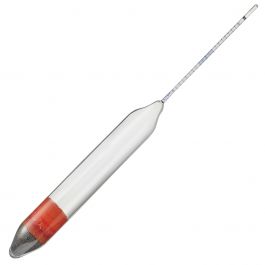- Joined
- Mar 7, 2019
- Messages
- 113
- Reaction score
- 37
I have a Milwaukee and it's just over a year old and it's broke gives all sorts of reading's. I need to get it repaired but not sure where to get it done.Really just wanting to get an idea of what everyone is using to test their salinity and how accurate, precise, consistent it is. How often do you have to calibrate it? Any negatives? I recently purchased the Milwaukee digital refractometer and I'm pretty upset with it for how much it cost. I'm constantly calibrating it, it can test 2 different levels with pressing read twice back to back, constantly .002 over. Looking for different options.
I'm in the UK.


















